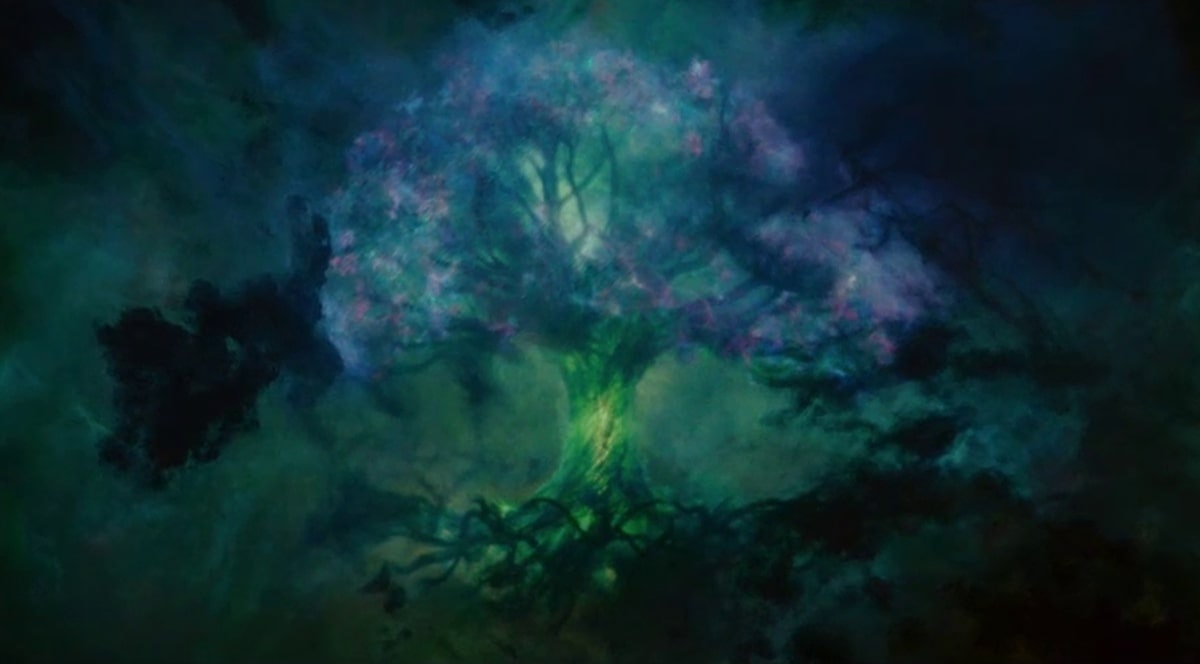
Loki’s godliness has always been more or less a technicality. He’s a god in the Marvel way, meaning he’s got a special status as an Asgardian and a host of mystical powers, but we haven’t seen him exactly worshipped. People knelt to him, sure, but that was at scepter-point. He’s just not what you imagine when you think of a god, even in the MCU.
But in the Season 2 finale of Loki, we finally see him realize what being a god means as he establishes a new role in the universe — and it’s rooted in a centuries-old Norse myth: Yggdrasil/
Warning! Major spoilers for Loki Season 2 Episode 6 “Glorious Purpose” ahead!
In the Loki Season 2 finale, Loki realizes the only way to preserve the flow of time and keep the timeline from disintegrating is to sacrifice himself and allow the Temporal Loom to explode. Faced with raw branches surrounding him, he starts grabbing them and imbuing them with his magic, eventually forming a giant tree full of timeline branches.

In creating this “Temporal Tree,” Loki has created Yggdrasil, the Tree of Life in Norse mythology said to connect all worlds. Yggdrasil connects the Nine Realms in Norse mythology, but Loki twists the meaning just a bit. Instead of space, this tree connects time. Loki is connecting all the different “worlds,” all the different multiverses, together. It’s where all the Norse gods gather, like Olympus in Greek mythology or Omnipotence City in the MCU.
But the parallels go even deeper than just this grand connection. Yggdrasil, roughly translated, means “gallows,” referencing an event told in the Norse poem Hávamál where Odin sacrifices himself to himself in order to gain knowledge of runes. He hanged himself from the branches of the Yggdrasil, making the most powerful offering for a noble reason.
There’s even a timeline connection in the Yggdrasil myth. In another poem entitled Völuspá, it’s revealed three maidens came from the lake under the tree and “chose lives” for mankind, much like the three Fates of Greek myth or even the Time Keepers themselves.

In a way, Loki is fulfilling both of these roles within the tree. One of the most prevalent tropes in all of mythology is that of gods being selfless and living in service of humankind. Loki is sacrificing himself for himself, or for Sylvie, his variant, so she and Mobius and everyone else can live, but also controlling the flow of time to keep the chaos (and spaghettification) from wreaking havoc yet again.
Before he heads out the blast doors, Loki looks to Sylvie and Mobius and tells them why he’s making this choice: “I know what I want,” he says. “I know what kind of god I need to be… for you.”
Loki’s journey was always built into the beginning. Both the first and last episodes of the series are titled “Glorious Purpose.” In the premiere, that term refers to Loki’s entitlement, his goal, to find some form of power. In the finale, it means the purpose Loki owes to himself and those around him.
Loki knows what kind of god he needs to be, and what his glorious purpose is. Unfortunately, that means sacrifice. But just like Odin before him, sacrifice is necessary for his character to grow. Now, it’s just a matter of how — or even if — we’ll see Loki again.







